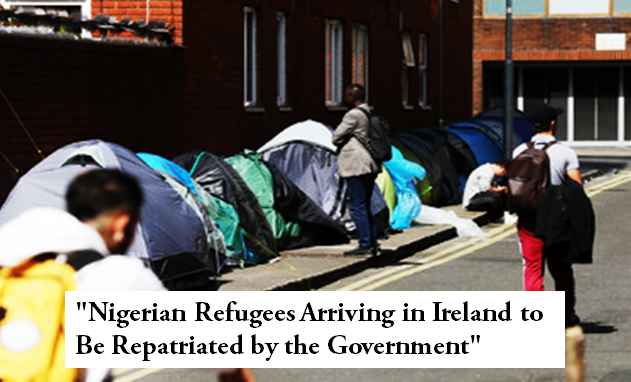Dublin: Recent developments have highlighted the complexities surrounding refugee policies and accommodations, particularly in light of Britain’s firm stance on not accepting refugees who entered Ireland. Justice Minister Helen McEntee addressed a cabinet sub-committee meeting, shedding light on the situation. She noted a surge in the number of Nigerians seeking refuge in Ireland from the UK and emphasised that due to Britain’s refusal to accept repatriates, Ireland was compelled to take action.
The High Court’s ruling further compounded the issue, allowing for the return of international applicants arriving from the UK to their countries of origin. Minister McEntee clarified that this decision was made in response to Britain’s own reluctance to accept returnees. However, tensions escalated as Prime Minister Rishi Sunak of Britain adamantly expressed his country’s unwillingness to cooperate, particularly concerning refugees crossing the Northern Ireland border into Ireland.
Moreover, Minister McEntee disclosed that since the implementation of Fast Processing for safe countries, there has been a notable 50 percent decrease in arrivals to Ireland. Notably, Georgia was added to the list of safe countries due to a high volume of applicants. In response to the evolving situation, the Cabinet Sub-Committee on Migration agreed to introduce legislation in June to address legal backlogs arising from the High Court ruling.
Meanwhile, the plight of refugees became starkly visible with the dismantling of temporary camps near the International Protection Accommodation Services (IPAS) office on Mount Street in Dublin. Approximately 100 refugees found themselves stranded on the highway without shelter. Despite desperate appeals, authorities could not guarantee immediate accommodations due to limited facilities.
In a letter from IPSA, refugees were informed of the lack of available shelter and were directed to city homeless services. However, the sudden displacement and lack of prior notification led to confusion and frustration among the displaced individuals. Some attempted to seek refuge at Tiglin, only to find it overcrowded and lacking adequate provisions. As a result, makeshift camps emerged in other parts of Dublin city.
This sudden upheaval disproportionately affected vulnerable individuals, including those from Palestine and Togo, who found themselves without a clear path forward. The situation underscored the urgent need for coordinated efforts to ensure the welfare and dignity of displaced populations, as they navigate an uncertain future amidst shifting immigration policies and logistical challenges.
Irish Samachar English News
{OR} Kindly click to follow the Irish Samachar News channel on WhatsApp


Comments are closed.